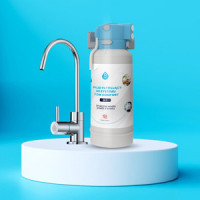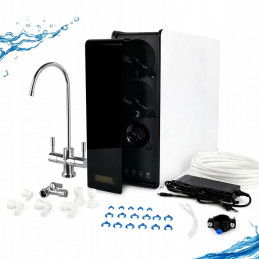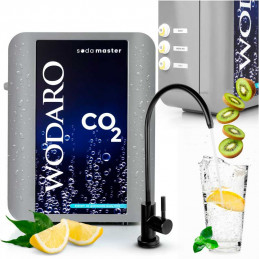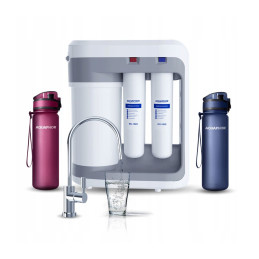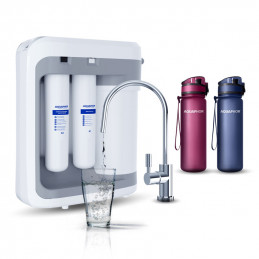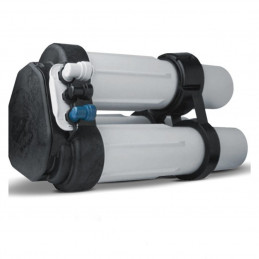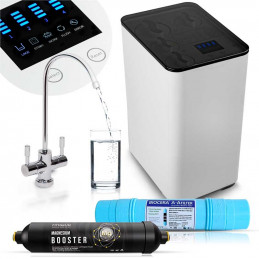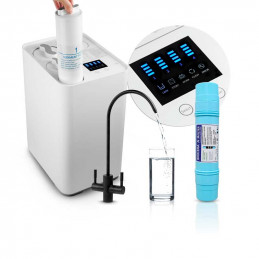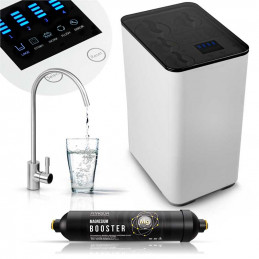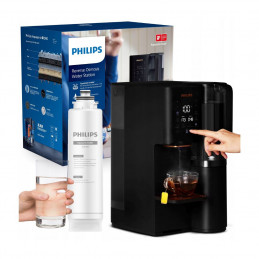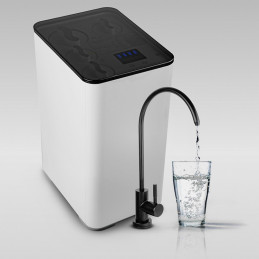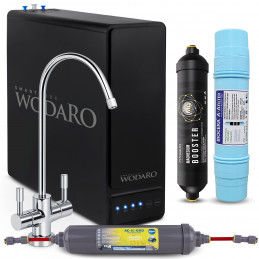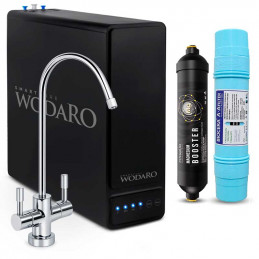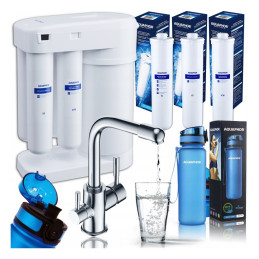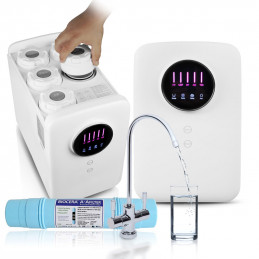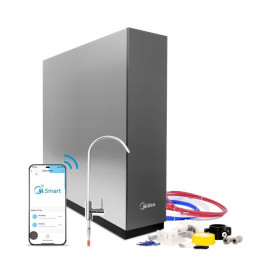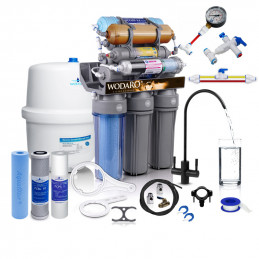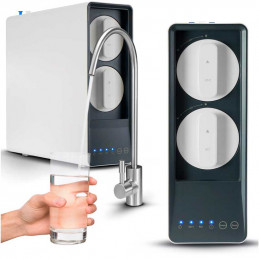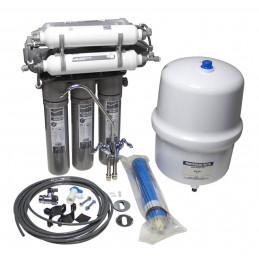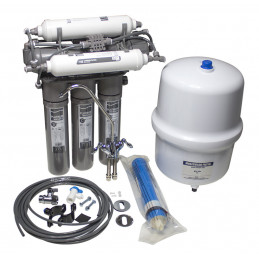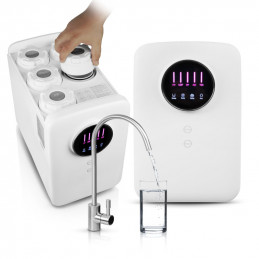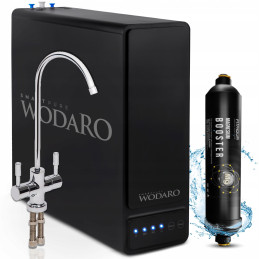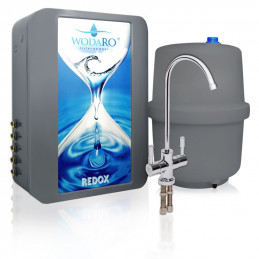- There are no more items in your cart
- Shipping
- Total 0.00 zł
- Bestsellers
- Wholesale
- Water filters
- Whole house filters
- Kitchen filters
- Bathroom filters
- Aquarium filters
- Reverse osmosis
- Water demineralizers
- Filter cartridges
- UV bactericidal lamps
- Alkaline water ionizers
- Industrial water filters
- Accessories, parts, and others
- Descaling filters for the coffee machine
- Water softeners and iron removers
- Water saturators
- ACES
- AMBERLITE
- AQUA VITA
- AQUAFILTER
- AQUAPHOR
- AQUATOR
- BASSAU
- BERG
- BIOCERA
- BIONIQ
- BLUEFILTERS
- CHEMOFORM
- CINTROPUR
- DAFI
- DELONGHI
- DIAMOND
- DOM WODY
- ECOWATER
- FILMTEC
- FIT ALCO
- FITAQUA
- GREEN FILTER
- HANNA INSTRUMENTS
- HELIXPRO
- HELLO PURE
- HIDROTEK
- HM-DIGITAL
- HONEYWELL
- Ibo
- JAVEL
- KLARWOD
- KRUPS
- MIDEA
- OTOWODA
- OTTONE
- Palintest
- PENTAIR
- PHILIPS
- PLATINUM WASSER
- PUROLITE
- SIEMENS
- Steingraf
- SUPREME
- TAB-SOL
- TOP FILTER
- UST-M
- USTM
- VONTRON
- WODARO
Tips
Water Filters for the Kitchen
The water we consume or use for practical purposes should be free from all chemical and biological contaminants. For this reason, filtration is very important. To have clean drinking and utility water, more and more people are opting for kitchen filters, which are available in various types on the market. These can include, for example, pitcher filters for purifying drinking water, faucet filters, or advanced reverse osmosis systems.
Filter
Price
Wysokość wkładu
Brand
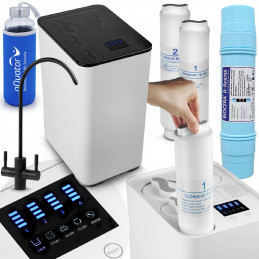
ROmeo Tankless Water Filter Reverse Osmosis
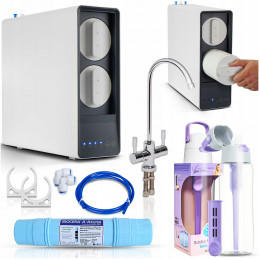
RO600 MINI Water Filter Reverse Osmosis BIOCERA
Why is access to clean water so important?
Tap water, although usually considered safe, can contain various types of contaminants. The most common include:
-
heavy metals (lead, mercury, cadmium),
-
chemical compounds (chloroform, pesticides),
-
microorganisms (bacteria, viruses),
-
mechanical contaminants (sand, silt, rust),
-
other substances, such as chlorine, which is commonly used for water disinfection.
Long-term consumption of water containing the above contaminants can lead to health problems, including gastrointestinal, kidney, and liver diseases, as well as cancer. For this reason, filtered water is not a luxury but an essential element of daily functioning.

Water filters for the kitchen – key benefits
Kitchen water filters significantly improve the quality of drinking water by removing harmful contaminants. As a result, they enhance the taste, smell, and overall quality of water, which translates into better health and well-being for household members.
Additionally, kitchen filters protect household appliances, such as refrigerators and dishwashers, from limescale buildup, thereby extending their lifespan and significantly improving their efficiency.
Kitchen water filters at MojaWoda.com
Which water filter for the kitchen should you use? There is no one-size-fits-all answer, as it all depends on individual needs. For some, an under-sink water filter will be the best choice, while for others, an advanced RO system will be a perfect fit.
The wide range of available products in our store allows you to choose a device that will enable all household members to enjoy the benefits of filtered water every day.
Under-sink filters
Under-sink filter, as the name suggests, is installed under the kitchen sink, connecting it to the water supply system. It consists of several filtration stages, ensuring effective removal of contaminants. This allows filtered water to be available directly from the tap. Under-sink filters are characterized by high efficiency and the ability to filter larger quantities of water.
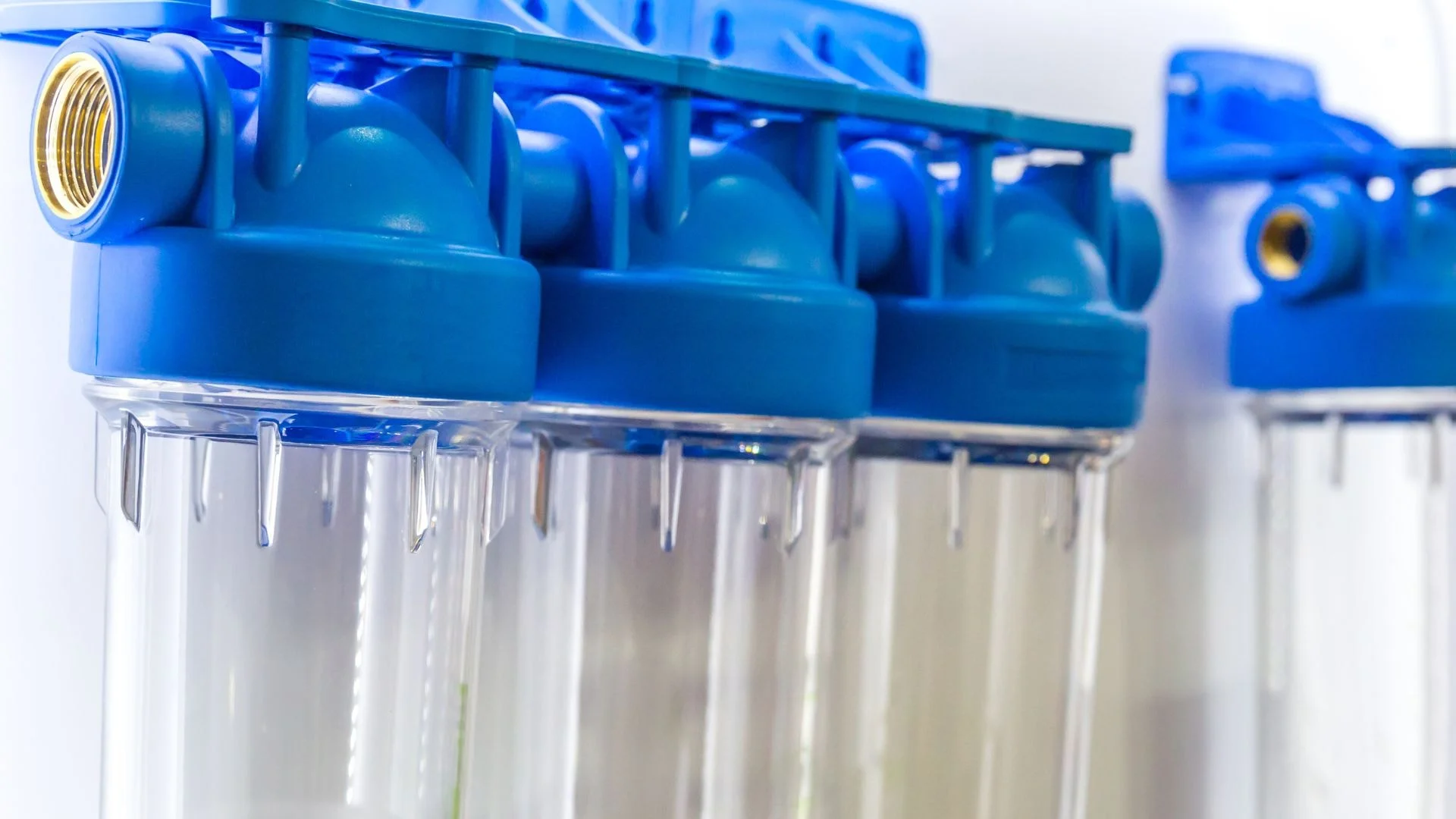
Tap filters
Tap filters are mounted directly on the faucet spout. They are easy to install and use, and are also relatively inexpensive. These filters effectively remove basic contaminants such as chlorine and sediments, improving the taste and smell of water. Their drawback is the limited ability to remove more complex contaminants and the need for frequent cartridge replacements.
Pitcher filters
Pitcher filters are the simplest and cheapest solution for treating tap water, with the greatest advantage being quick access to filtered water. How does such a compact filter work? Very simply! Water poured into the pitcher passes through a cartridge that removes contaminants such as chlorine, heavy metals, and organic impurities, and often adds essential minerals (e.g., magnesium).
The water pitcher is easy to use, portable, and requires no installation. Additionally, using it can successfully replace bottled water, significantly reducing plastic consumption.
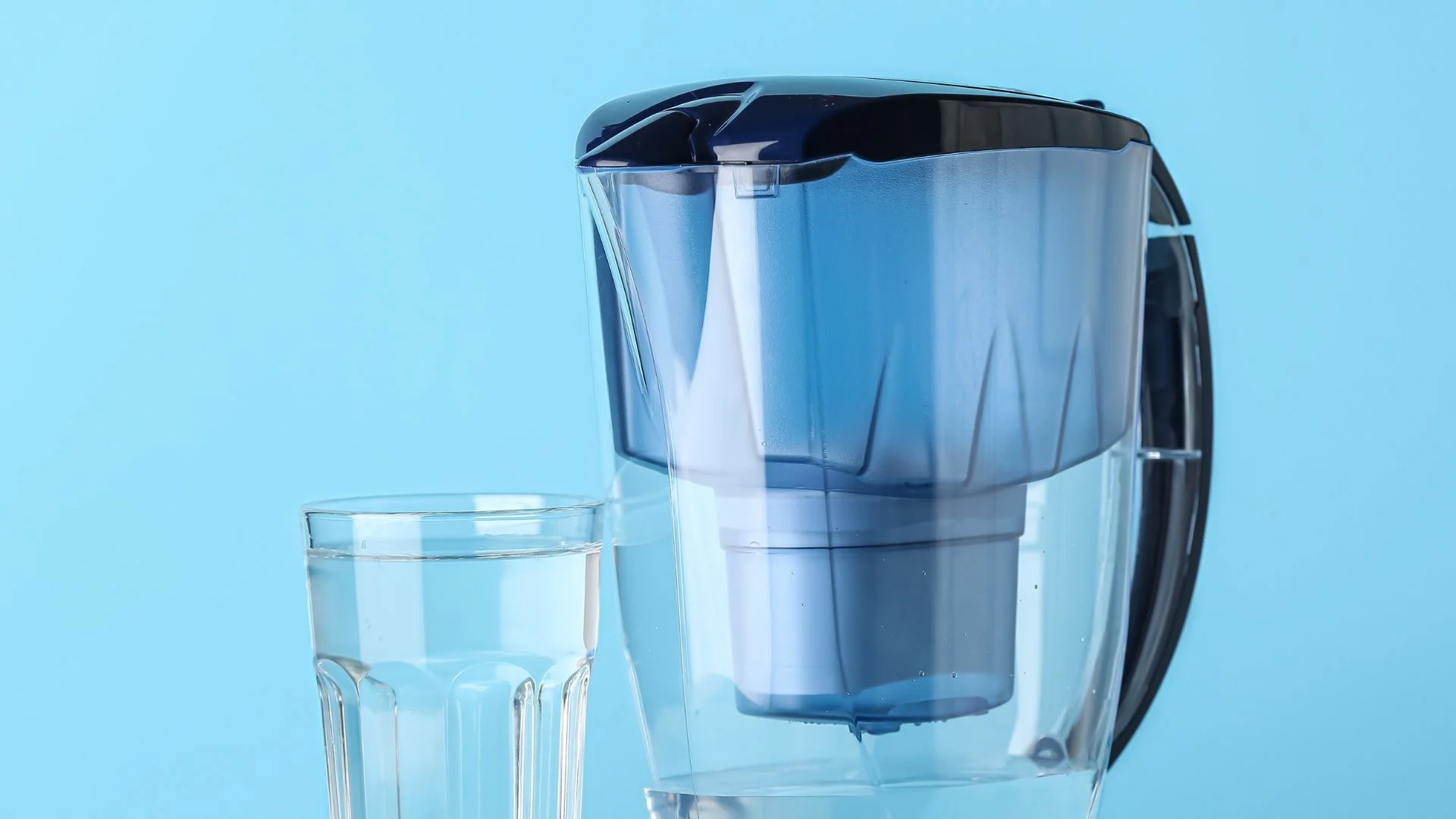
Refrigerator water filters
Refrigerator water filters are devices installed inside this household appliance. Their main task is to purify the water used for drinking and ice production. Refrigerator filters remove contaminants such as chlorine, heavy metals, sediments, and some organic impurities. Additionally, they positively affect the taste and smell of water.

Dishwasher water filters
Kitchen filter for the dishwasher is a device designed to remove contaminants and sediments from the water used for washing dishes. Its use improves the quality of dishwashing – thanks to it, the risk of streaks and spots on plates, glasses, and cutlery is significantly lower.
Countertop water filters
Countertop filters represent another group of water treatment devices. Installing them is incredibly simple – just connect them to the faucet in place of the aerator. Countertop water filters provide an interesting alternative to pitcher filters.
Filtering bottles
Filtering bottles are portable water containers equipped with an integrated filter that removes the most common contaminants, such as: chlorine, heavy metals, pesticides, and microorganisms. Additionally, the cartridges used in them can improve the taste and smell of drinking water.
Reverse osmosis filters
Reverse osmosis filters (RO) are among the most effective filtration systems for kitchens. Their operation is based on the fact that water flows through a semi-permeable membrane that retains most contaminants, including harmful microorganisms, heavy metals, and mineral salts.
RO systems often consist of several filtration stages, including carbon and mechanical filters. Despite being more expensive than less advanced solutions, reverse osmosis is convincing due to its extraordinary effectiveness.
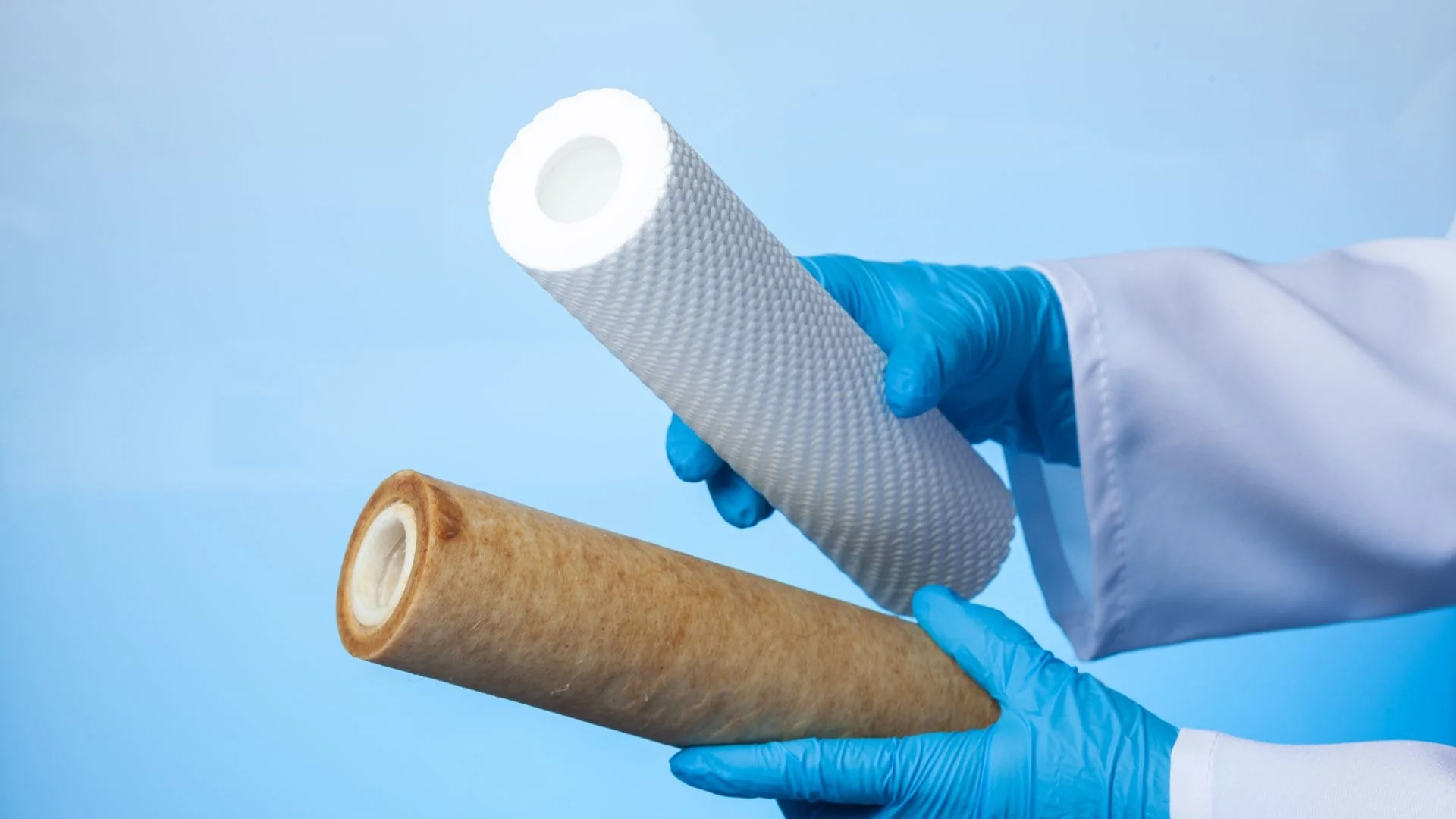
Choosing a kitchen water filter
Needs analysis
Choosing the right kitchen water filter depends on individual needs and conditions. Before making a decision, it is worth conducting an analysis of tap water to determine the type and amount of contaminants. It is also worth considering our requirements regarding the taste and smell of water. Financial capabilities are also significant – purchasing and maintaining a pitcher filter will, of course, cost less than operating an advanced reverse osmosis system.
Costs and operation
```As we mentioned a moment ago, the costs of purchasing and operating kitchen water filters can vary significantly. Pitcher and faucet filters are relatively inexpensive but require frequent replacement of filter cartridges. On the other hand, under-sink water filters or reverse osmosis systems will be more expensive, but they offer higher filtration efficiency. Buying the equipment is one thing, but it is also important to consider maintenance costs and potential repairs.
Installation and Maintenance
Some water filters require professional installation, which can incur additional costs. Others, such as pitcher or faucet filters, can be installed by yourself without specialized knowledge. It is also important to remember that regular maintenance and replacement of filter cartridges are essential to ensure filtration efficiency and the long lifespan of the system.
Kitchen Water Filters at MojaWoda.com
A kitchen water filter is an invaluable tool in providing high-quality drinking water. In addition to improving taste and odor, filters remove harmful contaminants. The choice of the right model depends on individual needs, the quality of tap water, and budget.
If you are looking for proven solutions for water filtration in the kitchen, check out what we have to offer. Currently, it includes the following devices:
-
under-sink water filters,
-
modern reverse osmosis filters (selected models also feature mineralization and ionization of drinking water),
-
kitchen filters for household appliances (e.g., for refrigerators or dishwashers),
-
countertop kitchen filters,
-
faucet water filters,
-
filtering pitchers and bottles.
We encourage you to explore our rich offer!
FAQ – Frequently Asked Questions
1. Why is it worth installing water filters in the kitchen?
Installing water filters in the kitchen helps remove chemical and biological contaminants from the water, resulting in improved taste, odor, and quality. This makes the water healthier to consume, and household appliances such as refrigerators and dishwashers are protected from limescale buildup.
2. What contaminants can be found in tap water?
Tap water may contain heavy metals (lead, mercury, cadmium), chemical compounds (chloroform, pesticides), microorganisms (bacteria, viruses), mechanical impurities (sand, silt, rust), and other substances such as chlorine, which is often used for water disinfection.
3. What types of kitchen water filters are available on the market?
There are various types of kitchen water filters available on the market, including: pitcher filters, faucet filters, under-sink filters, countertop water filters, filtering bottles, and advanced reverse osmosis (RO) systems.
4. How does a reverse osmosis (RO) system work?
A reverse osmosis (RO) system works by allowing water to flow through a semi-permeable membrane that retains most contaminants, such as: microorganisms, heavy metals, and mineral salts. RO systems often consist of several stages of filtration, including carbon and mechanical filters.
5. What should be considered when choosing a water filter for the kitchen?
When choosing a water filter for the kitchen, it is worth conducting an analysis of tap water to determine the type and amount of contaminants. You should also consider your requirements for the taste and odor of the water, as well as your financial capabilities.




